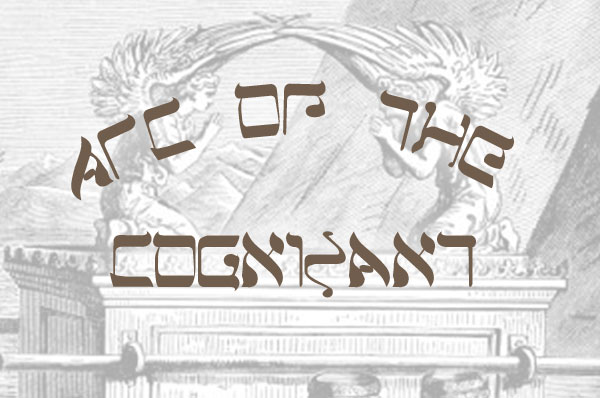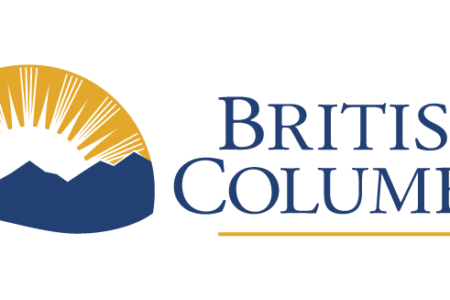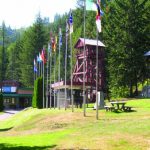EMPIRE, EXEMPLARS AND EGOTISM
“Hail, Atlantis! Her scientists and wise elders knew such wondrous things as made them seem magicians to the men of earth. Her beautiful sailors carried the knowledge and gifts of the island realm to every shore, and her teachers brought all humanity within the embrace of her blessed ways of life.” – Donovan, Down below the Ocean
“When the proud ships of Ar-Pharazon the Golden touched the shore of the Blessed Lands, in violation of the edict of the Valar, then the Valar laid down their rule over Middle Earth and called upon Eru, the One; with the waters of Ocean, He overwhelmed the kingdom of Adunalante. All vestige of the lands in the western sea went beneath the waves, and the shape of Middle Earth was changed forever.” – J R R Tolkien, Silmarillion
By Charles Jeanes
Imperialism: for and against
On June 18, the two-hundredth anniversary of the Battle of Waterloo was celebrated in Belgium by members of the British Royal Family, members of the family of the Duke of Wellington, and descendants of Napoleon Bonaparte. It is a significant event in European and world history, and in the non-French parts of Europe, especially England, it is hailed as a victory for freedom against the imperial tyranny of the French armies and the military genius who led them.
The word imperialisme was not yet in use at the time of the battle, but when Napoleon’s nephew Louis ruled France as Emperor (1852-’71) the label came into vogue to describe his regime’s policies. Britain adopted the word after Louis Napoleon was gone from the scene, and after Queen Victoria adopted the title Empress of India in 1877. British Imperialism was not apologetic; Britons were absolutely certain their imperium meant the spread of freedom, the Mother of Parliaments, and the Rule of Law. Rudyard Kipling celebrated empire in his poem “The White Man’s Burden,” telling imperialists that “lesser Breeds without the Law” would not thank the white man for his taking care of them.
Let us survey imperialism across history, and assess how Canada is implicated in the grand narrative of empires and conquests since recorded history began.
Biblical teaching about empires
Our sacred text in the West, the Bible, is generally anti-imperialist in its historical sections of the Old Testament, yet the worshippers of YHWH in the Promised Land made exceptions to the principle of anti-imperialism when their own kings were conquerors and emperors.
Moses freed the 12 tribes from the Pharaoh’s empire, and forever after, Egypt was a neighbour whose expansionism into Israel and Judea was feared and damned by the prophets. Kings David and his son Solomon were war-making kings whose conquests created a short-lived empire, if you choose to believe the one source we have for this imperial success, the Book of Kings.
Assyria annihilated 10 tribes in a burst of empire-building in the eighth century BCE, and Babylonia exiled the last two tribes from Judah to Babylon for 70 years in the sixth century. The prophet Daniel in a vision saw a beast with four horns representing four empires: Assyria, Babylon, Persia, and Greece.
The Greeks were the worst, for their empire led to the attempt by mad King Antiochus IV to end the Jews’ particular worship and to his horrid desecration of the Temple by sacrificing swine to Zeus on the altar. No more horrible deed was ever done in the Temple by any empire — until the Roman army in 70 CE utterly razed it to the ground in the Great Jewish War.
Alexander, the Caesars, and Christendom
One must not pass over Alexander the Great as the finest exemplar, in the entire history of Western civilization that founds itself on the Greco-Roman cultural heritage, of a glorious creator of an invincible empire. In four years, he overwhelmed the Persian King of Kings and marched his armies to the ends of the known world in India. Alexander’s myth, as opposed to factual history, has set him up as an unbeatable military genius, an evangelist for brotherly love among all Greeks and Asians (Greek, philadelphia), and a tragic king who died too young to make his dream of the brotherhood of man into political fact.
Jesus of Nazareth, who for a minority of Jews was Messiah of the Davidic dynasty, lived in the era of expanding Roman imperialism, and he suffered agonizing execution for the political crime of seeming to threaten Roman rule by his royal pretentions and his ideal (shared with John the Baptizer) of a Kingdom of God that would overthrow all Gentile rule.
Nevertheless, Rome has been much-admired by patriarchal academic historians and law-and-order political leaders of our Western habits of governmental, philosophical and judicial traditions.
Despite a good reason to abhor Rome and its imperial Caesars as the killer of Christ, Christians organized into a State Church and became enthralled by the model of a Christian Empire as instituted by late Roman emperors like Theodosius and Justinian. Popes living in Rome evolved into copies of the pagan Emperors during the high-medieval era.
One very great king of the Franks, Charlemagne, exercised a short-lived militarized rule over most peoples of Roman or Latin Christendom in the ninth-century dark ages, and created a new imperial order in the West. Charles crusaded against pagan Saxons and Avars, and infidel Muslims. His Germanic successors took the title for themselves of “Holy Roman Emperors” as the supreme secular rulers of Europe when Europe was known as the Christian Republic. This empire came to be the monopoly of one dynasty, the Habsburgs, in Vienna, and was destined to last a thousand years.
The practice of imperialism was not in the least condemned by medieval Western intelligentsia. It continued to develop an enormous appeal after Portugal and Spain acquired overseas empires east of Africa and in the New World, respectively, which enriched them and made Spain the mightiest power over Europe in the 16th century. Spain held off the empire of the Muslim Turks.
Napoleon and Hitler
In modern history, since the colonization of the non-European world by the “white” race, two colossal world-conquering imperialists stand out. I have already mentioned Napoleon, who modelled his empire consciously on examplars such as Charlemagne and the Caesars, and who was only laid low when all other great powers of Europe allied to defeat him in 1814-’15.
Adolf Hitler is the other emperor of modern times in Europe, who called his regime the Thousand-Year Reich in imitation of the Holy Roman Empire founded by Karl der Grosse (that is the German for Charlemagne) which had endured from 800 to 1806 CE. His Nazi empire that bestrode Europe in 1941 had a racialist and genocidal purpose that was far more odious than Napoleonic imperialism, and the Fuhrer was brought down in a six-year war, rather than a 16-year era of intermittent wars as with the great French general.
Not everyone chooses to put Napoleon and Hitler in analogous categories; most who do that, it must be said, are English-speakers.
Britain and the Anglosphere
The British Empire arose as Napoleon fell, and Britannia, ruling the waves with its globe-spanning Royal Navy, invaded, annexed, colonized and exploited about one-fourth of the planet’s surface and one-fifth of its population by 1920.
Canada is a land first invaded and settled in small part by imperial France, then conquered by Britain; both these European, Christian, capitalist powers assumed a superiority to the Natives in North America just as the Spanish and Portuguese had done before them. The rights of aboriginal peoples were subject to European notions of natural law, which assumed the white race and its religion were much higher on some theoretical hierarchy of civilization. No more justification was judged necessary to explain that Britain should rule Ireland, North American natives, Indians and other Asians, and Africans.
Among the whites of Europe, Anglo-Saxons were placed at the peak by English and American pseudo-science. Teutons and Nordics were masculine, Latins, Celts, and Slavs were feminine, and inferior, in the parlance of late 19th century patriarchy and racialism.
It is easy to forget, because our texts obscure the fact, that racialist ideology was intellectually and “scientifically” the norm before the Nazi regime carried its ideas into effective practice and made racism politically unthinkable for a few generations. There is evidence that racism is now again on the rise.
The point is, an empire ruled by one small island nation-state in north-west Europe was made to seem attractive, justified, and glorious by a constellation of ideology, religion, economic theory, and junk science. Empire is founded by colonizing minds as much as by imposing military and naval force.
Capitalist America and Soviet Russia
In my lifetime, imperialism has been in low repute; Britain surrendered Ireland, then India earliest, then its African and Asian colonial lands, while the USA and USSR each championed a particular style of anti-colonialism. America trumpeted its own liberation from the British Empire by the Revolution of 1776 as an example for all colonized peoples. Red Russia spoke of promoting and supporting Revolution for the toiling masses and set up Imperialism as the key form of capitalism against all working people from the time Lenin wrote his polemic describing WWI as a capitalist-imperialist war.
America called its empire the democratic free-market Free World, Russia conceived of its sphere as the Socialist lands of all peace-loving peoples. This confrontation of imperial superpowers was called the Cold War.
Each empire had ways of turning its role of defender into a domineering presence over other peoples; Latin America was particularly subject to American capitalist exploitation under client states ruled by brutal military “anti-communist strongmen,” and East Europe was held in the heavy hand of Soviet military and secret-police occupation. The Third World, including China, India, southeast and southwest Asia and most of Africa, were the arena of proxy wars between the superpowers. Russia helped Mao win in China.
In recent times, the Middle East was the stage for America and the Soviets to fight one another by client wars; the USA armed and backed Israel, and for the period 1980-88 Iraq against Iran, while the USSR backed the Arab states and invaded Afghanistan where the USA armed the jihadists who would later become the Taliban. Viet Nam was the war that pitted first France, then America, as imperial overlord of the South against a Northern state upheld by China and the USSR. China posed as the Third World’s independent champion during the years of Maoist anti-imperialism; Mao called both the superpowers imperialists.
Without the USSR on the world stage, the USA and its NATO partners have managed awhile to dominate global events, but that ended in the 21st century.
The U.N. and World Court
After WWI, an American President led the Allied powers of imperial Britain and France to create a League of Nations; it was founded upon the Western evolution of international law, diplomacy, economics, and institutional democracy. Fascist Italy, Weimar Germany, imperial Japan and Bolshevik Russia all belonged at one time or another, but the USA opted out.
For non-European peoples, the League promised democracy and the standard of living of Western capitalist development, and did not deliver. After WWII, a second attempt at world order under Western leadership was made via the United Nations. This is the only global institution with a pretence at making order in the world, attempting to spread peace and universal human rights.
Because the UN is Western in origin and inspiration, in idealism and politics, it is suspected of a degree of Euro-chauvinism. That is less true now than in 1950. The UN is no longer clearly dominated by the USA, Britain and Europe.
Russia and China belong to the all-powerful Security Council, along with the USA, UK and France. Truthfully, the great hopes put upon the UN to make the world better in 1946 have fallen short. Still it is the one organization that stands in principle for a world not run by empires or great-power realpolitik.
The World Court, which has prosecuted war criminals from Nazi Germany, from Serbia and the Balkans, from various African, Asian and Latin American regimes, is another institution potentially able to make the world community a less savage place. Is it Western cultural imperialism with a mask of universal human rights? Some have said so. Again – is there any alternative institution?
NATO and OECD
In the 1990’s and for the first decade of the 21st century, NATO has had a brief era when it triumphed in policing the world, beginning with the first Gulf War in 1991 to bring Iraq low, and in the swift regime change in Afghanistan. But the ensuing years have shown that NATO’s imperialist potential is weak. The USA has learned the limits of its stupendous military, naval and air forces in the Middle East. A new Cold War with a resurgent Russia is seen by some as not improbable. China has taken a world role as emerging superpower also.
The OECD, for the world’s elite nations of economic affluence, is another alignment of states with a quasi-imperial reach into other nations’ economies. The World Bank and IMF are agencies to subject “developing” nations to demands from the rich world. Thus, the neo-liberal agenda of free and unrestricted trade between corporations is reasonably seen as promoting the empire of an insidious capitalism. But this is not imperialism as usually practiced, with clear military aggression to enforce political rule. States are coerced into compliance with neoliberal globalism by economic power more than by force; Naomi Klein described how that is done in her thesis titled the “Shock Doctrine.”
Harperism: a new Geopolitics for Canada
Canada under Harper has undergone an amazing transformation into a mini-champion of democracy, a role the USA once played during the Cold War. Our P.M. struts the world stage, mouthing strident rhetoric against Russia’s leader, against Iran and Syria, against “global jihadist terrorism” and sundry other villains he has identified, while asserting militant support of Israel and NATO. (But, our actual spending for NATO is only half of what our allies ask us to spend.) We had never, before Afghanistan, sent our army to aid an imperial power fighting an insurgent nationalist guerilla enemy; we said no to Viet Nam or other American adventures in the Third World.
We have changed. It is no longer certain that we will say no to the US or UK when they want us to join a war against people who do not want the order imposed by an empire. Harper believes the West, as NATO, has the same civilizing mission the British and French empires once claimed to pursue.
In the era from WWII to Harper, Canada honed a presence as a stalwart support of the UN, but Harper has scant respect for that. Our contribution to UN peace-keeping has fallen as we have pumped up our military expenditure and intention to rearm our air force and army; Harper likes the armed forces.
After Afghanistan and Libya and the war with I.S., Canada must have an image in the world nothing like what it was a mere decade ago. Once we called our geo-political strategy “middle-power” diplomacy. Now Harper has rebranded us ideologically, putting a face on our actions abroad as if to say that democracy, “free markets”, human rights, and the “rule of law” are our policy goals.
In fact, he also seeks to maximize capitalist economic opportunities for Canadian corporations doing business in foreign lands. And at this moment, the revelation of Canadians’ abhorrent treatment of aboriginal nations here has stunned informed people abroad, and severely shaken the reputation of Canada as a land where justice and rights prevail.
Engines of Domination
Imperialism of the sort Roman Caesars or other great egotists like Alexander, Napoleon, and Hitler, once fought wars to promote, is at present rare. Saddam in Iraq was such a mini-imperialist once, but his ilk is more rare now. Putin intends Russia to be equal as a world power to the USA and China.
Empires are decidedly not respected anymore, yet the forms of imperialism are always evolving. Imperialism as a process is an engine of domination. There is little evidence that the appetite of powerful states to dominate weaker ones has gone away. The means of domination have changed, the end has not.
Conclusions: Imperial Consciousness vs. Evolutionary Agency
The dominance ethic is still alive and well in states; national interest, reason of state, the legitimate egotism of national sovereignty, are current phrases that explain the geopolitics of governments now, but despite the newer language, the intent is still the same as when Thucydides wrote, “The strong do what they will to do, the weak do what they must do.”
Against this long tradition of rulers and ruling classes accumulating power to exercise force in their own selfish interests, an idea is glimmering among philosophers about a new way humanity might steward the planet. Thinkers like Brian Swimme and Frederick Turner write about humans becoming self-conscious that we are agents of natural selection. Not by domination of earth and other lives, but by consciousness of choosing the future by our actions, is how humanity ends its terribly mistaken idea of being outside of Nature.
That kind of human species, that kind of intelligent life and consciousness, would cease to be a species that builds empires to control the world. It would be a life-form that builds ecologies to further the unfolding of the universe that began with the Big Bang. Imperialism is a disease of mind; community with other life is the cure.
























